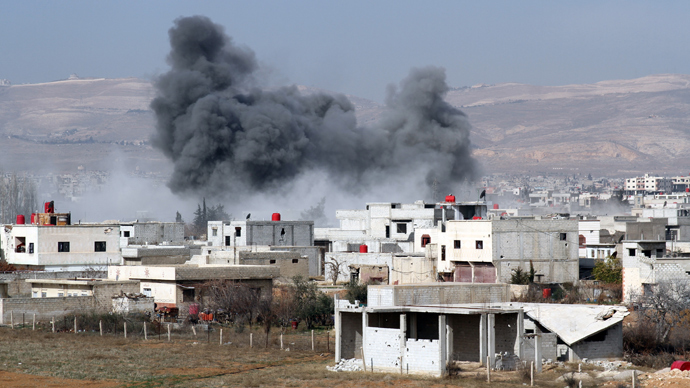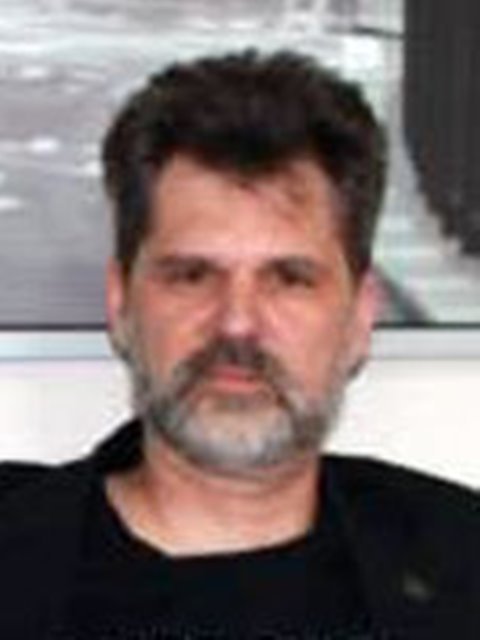Keep on truckin': Turkey and Al Qaeda in Syria

In view of Turkey’s possible meddling in the “civil” war in neighboring Syria, news about a Turkish truck headed for the Syrian border appears rather uncomfortable for the ruling government in Ankara, already in the throes of a corruption scandal.
In the first days of the new year, Turkish media reported that a truck carrying aid for Syria that had been collected by the by-now notorious Humanitarian Aid Foundation, or IHH, had been stopped by the local gendarmerie of the Turkish province of Hatay bordering Syria.
IHH garnered a lot of public attention in 2010, as a result of Israel’s violent attack on the Turkish ship Mavi Marmara delivering humanitarian aid to Gaza. Now, with war raging in Syria, it seemed that IHH again appeared willing to aid fellow-Muslims under threat, supplying humanitarian aid to those in need. But some days later, the journalist Fevzi Kızılkoyun revealed in the popular daily Hürriyet that the truck had allegedly been carrying weapons and ammunition, bulletproof jackets and electronic devices, in addition to a number of survival goods.
When the gendarmerie moved the truck to their headquarters, a total of three individuals were detained – two Turkish and one Syrian national. IHH disowned the truck, and subsequently it was revealed that the truck in question actually belonged to Turkish National Intelligence Organization (MIT) and that the detained individuals were to be freed on account of their special status as intelligence officers. The MIT operatives then revealed that the truck and its cargo had been part of an operation classified as a “state secret.”
In this context, Turkish President Abdullah Gül entered the fray to declare that “[certain] very extreme groupings have emerged in parts of Syria close to the Turkish border. There exists a Turcoman entity that is being crushed in the middle of these very hard conditions. It is [Turkey’s] duty to offer aid to Syria’s Turcoman [community]. They stated that this affair to do with this truck was [about] a vehicle delivering aid to the Turcoman [community] in Syria. I asked them about this truck [and] that is what I was told as well.”
The fact that Turkey’s notorious intelligence organization MIT appeared directly involved led to the application of the 26th article of the law regarding the National Intelligence Organization (Law No. 2937, adopted in 1983), which specifically prohibits criminal proceedings against MIT members and hence the real contents of the truck have not been made public. Thus the allegations of the presence of “weapons and ammunition, bulletproof jackets and electronic devices” could not be substantiated. The Interior Ministry instead intervened directly and allowed the truck to continue on its journey.

The government intervention apparently aimed at thwarting a serious investigation into the affair ensured that the opposition eagerly grabbed hold of the truck and its alleged contents to attack the Prime Minster Tayyip Erdoğan and his government. This truck affair appeared on Turkey’s political scene in the middle of a huge corruption scandal that has also been marred by government intervention. The leader of the opposition CHP (Republican People’s Party), Kemal Kılıçdaroğlu, for example, immediately made the pronouncement that Turkey was supplying weapons to Syria’s armed opposition, elaborating that “[b]y means of sending weapons to the Syrian opposition Turkey is saying as much as go kill your neighbor.”
Abdüllatif Şener, a co-founder of the AKP in 2001, who left the party in 2007 and has since joined the ranks of those critical of Turkey’s current government, appeared on the opposition television channel Halk TV claiming that Erdoğan himself is personally responsible for Turkey’s current policy on Syria. He posited that the Free Syrian Army (FSA) was no longer active on the ground in Syria as is had been defeated by Islamist groupings, Şener calls “Al-Qaeda” and literally stated that “there is a [direct] link between Turkey and [Al-] Qaeda elements.” Şener even went on to say that the truck in question had been carrying “weapons for Al-Qaeda, [and that it was going into] a region controlled by Al Qaeda.”
In this way, one can see how the US war on terror, originally launched by George W. Bush in 2001, has now even entered the political discourse in Turkey as a sure means to slander Tayyip Erdoğan and his Muslim-democrat party, the AKP or Justice and Development Party. The war in Syria harbors a great many factions, some of which have clear Islamist leanings, with the Al-Nusra Front (ANF) being the most prominent and notorious one till recently. The West easily call this group an “Al-Qaeda associate” active in Syria. Another name that also seems to have dominated the airwaves recently is the Islamic State in Iraq and the Levant (ISIL), referred to as an “al-Qaeda splinter group.” In this way, the current war in Syria is presented as another part of the supposedly never-ending war against the enemies of civilization, centered around a mysterious organization known only as Al-Qaeda.
The main armed opposition in Syria initially was formed by the Free Syrian Army (FSA), heavily supported by the US and Turkey. But the fighting over the past years has now led to a remarkably different landscape, where Islamist and Jihadist groupings are now calling the shots. Just like the FSA, these latter factions are also heavily dependent upon outside support, notably from Saudi Arabia and Qatar, apparently funneling millions of dollars to these “rebels” (or should they be classified as “terrorists” instead, giving their clear anti-Western and Islamist credentials?) on a monthly basis.
In fact, this material support apparently went even a lot further in some case. For instance, in the course of 2012, video footage emerged of auctions held in Saudi Arabia where fathers offered their sons up as would-be suicide bombers in exchange for substantial compensation offered by the highest bidder. It needs to be stressed, though, that this footage was originally aired by the Hezbollah-backed al-Manar TV, a source that cannot be seen as a neutral party in the Syrian conflict. In the end, however, the serious support received by these Islamist groupings has now led to a shift in the focus of the fighting – violence that has now led to more than 120,000 dead on the ground.

The armed opposition has now become mired in serious infighting, a violent power struggle that is currently pitting the FSA against ISIL. Already some three years ago I wrote that, in this context, a phrase that “Al-Qaeda remains a catch-all ghost entity” appears very helpful. At the time I wrote that “the name Al-Qaeda is used by the US to suggest the presence of a threat that is then employed to justify [possible US] military intervention. The flipside of that stance is now that terrorists and like-minded individuals opposing US dominance and interventionism equally cite the name Al-Qaeda to gain credibility, notoriety and media exposure.”
Even today, the media persist in using the name Al-Qaeda to hint at the existence of a “global network” of Islamist fighters. In Syria, this seems abundantly clear as well, as Al-Nusra’s current leader Abu Mohammad al-Golani even proclaimed his allegiance to Al-Qaeda leader Ayman al-Zawahiri, conspicuously absent from the news over the past years. And now, the Turkish opposition also seems to have seized upon this opportunity by using the name Al-Qaeda to insinuate the AKP’s supposedly nefarious goals in Syria (and possibly Turkey).
The story surrounding the seizure of the truck headed for Syria has in this way become another opposition argument against Tayyip Erdoğan and his government, an argument that directly links the AKP with the name Al-Qaeda, hinting at the existence of certain affinities and sympathies that are clearly meant to create a wedge between the Turkish public and their openly pious prime minister. In contrast, the government has countered such reasoning by inserting the Turcoman community living in Syria into the narrative as an obvious appeal to Turkish nationalist sentiment, arguably to deflect attention from possible links to “Islamist groupings and/or Al-Qaeda affiliates.”
As such, some members of the Turcoman minority in Syria opposed to Assad have already sought refuge in Turkey and even founded their own political organization last year, called the Syrian Turcoman Assembly, led by Semir Hafız. At the time, Hafız even declared his intention to set up a number of Turcoman brigades to join the fight against the Assad regime, as the Turcoman community was caught in the middle of competing factions – Kurdish and Islamist, to be precise.
Given all the external meddling, the conflict in Syria has become incredibly convoluted, and now that the Assad regime appears to be gaining ground against the opposition, the media tend to focus on the “Islamist groupings and/or Al-Qaeda affiliates” active in Syria. In the end, one cannot but wonder whether the Turkish truck destined for Syria was carrying “weapons and ammunition” for so-called Al-Qaeda affiliates, or logistical aid for the beleaguered Turcomans of Syria.
A few weeks have now passed, and on January 19 a grand total of seven more trucks headed for Syria were stopped near the Turkish city of Adana – trucks also supposedly carrying humanitarian aid for the suffering people of Syria. But again, mortar-shells, rockets and various other pieces of ammunition were also found inside those vehicles.
In response to these additional trucks being investigated, the government has not revived its earlier-employed Turcoman argument in defense. The fact that these trucks are being stopped now, as Turkey is mired in a corruption scandal that has led the prime minister to declare that his government is being attacked by a "parallel structure," does appear to be significant.

In other words, Tayyip Erdoğan is now claiming that the allegation that Turkey is in the process of smuggling weapons into Syria is nothing but part of an organized smear campaign aimed at discrediting Turkey's AKP government. As it is, ever since the outbreak of violence in Syria, Turkey has spent about $200 million sending aid into Syria in hundreds of trucks. Iran's Fars News Agency nevertheless reports that the apprehended trucks' drivers “confessed that the terrorist groups are handed the weapons in a border area they describe it as 'a buffer zone' . . . The Turkish drivers stressed that they deliver not only weapons and ammunition to what they described as “the opposition,” but all sorts of goods with the knowledge of all Turkey’s officials."
Turkey's prime minister visited Brussels some days ago, and in addition to having talks with the President of the European Council, Herman Van Rompuy, he also took time to talk at a summit organized by the Turkish business organization TÜMSİAD. Addressing these businessmen, Erdoğan managed to voice his opinion on the apprehended trucks and Turkey's relationship with Syria's opposition: "Now, with the help of the ‘parallel structure' there are some attempts to show that Turkey as a country is supporting terrorism [in Syria]. Turkey's efforts to transfer humanitarian aid [to Syria] have been prevented. While Turkey has been struggling with the [Kurdish terrorist groups, the] PKK and the PYD, while it is struggling with the DHKP/C [Revolutionary People's Liberation Party/Front], al-Qaeda and al-Nusra, there are some efforts to show that Turkey is arm-in-arm with terrorism [in Syria]."
Were these trucks carrying humanitarian aid or were they ferrying weapons to the Syrian opposition? The answer to this question may be a key to understanding whether Turkey's government is being unfairly targeted by a nefarious cabal bent on disrupting the democratic process in Turkey or, conversely, these trucks constitute a definite proof of Turkey's complicity in the ongoing war in Syria.
The statements, views and opinions expressed in this column are solely those of the author and do not necessarily represent those of RT.
The statements, views and opinions expressed in this column are solely those of the author and do not necessarily represent those of RT.













